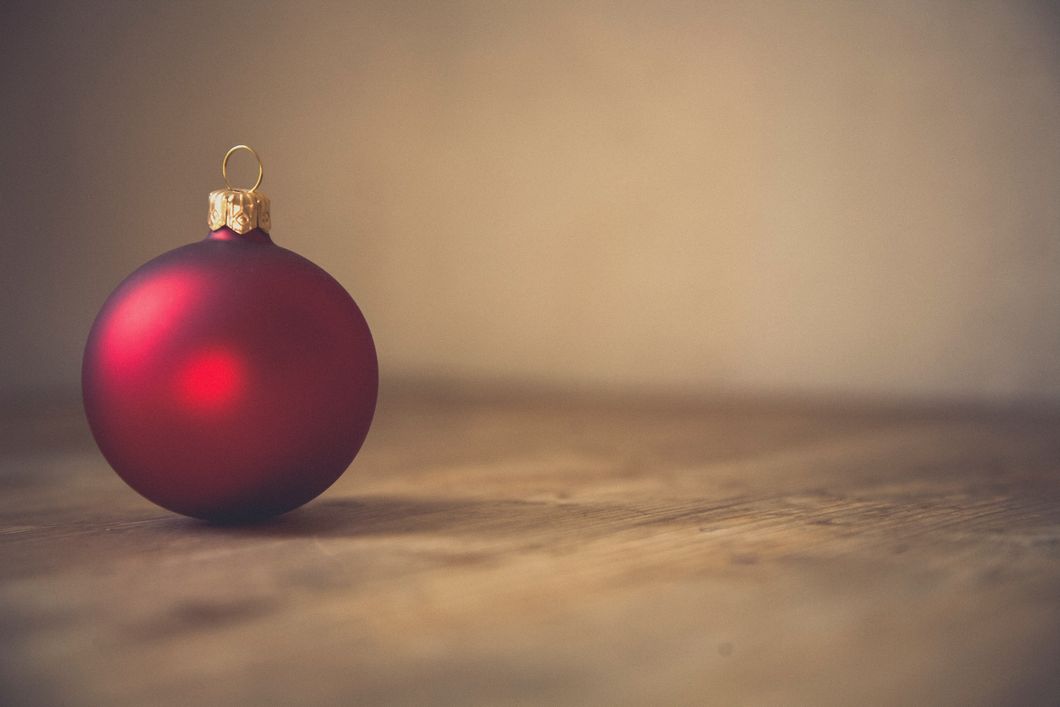After a Thanksgiving break spent unboxing Christmas decorations, trimming the family tree, and listening to carols on a loop, it's safe to say I'm eagerly anticipating Christmas. I ordered most of my gifts for family and friends on Cyber Monday. I am mentally counting down the days until I can escape the last of my finals and hop on a train to my festively-decorated home.
I am an enthusiastic lover of Christmas—albeit one who prefers the festivities commence after and only after Thanksgiving has passed.
But I'm also not the only person on the planet. And although my own traditions dominate my experience of the last months of the year, I make an effort to replace "Merry Christmas" with "Happy Holidays" when speaking to strangers.
I am a proud participant of the so-called War on Christmas.
At my Christian middle school, I remember talk of how the Christmas nickname "X-mas" was inappropriate because it—quite literally—removed "Christ" from the holiday.
And indeed, in my family, Christmas has always been tied to religion. Every year, we set out cookies for Santa and munch on candy canes and fantasize about all the shiny new possessions we will soon unwrap, like any secular family, but we also go to church on Christmas Eve. I have starred as a Wise Man bearing gifts in more than one Christmas pageant. We have nativity scenes and talk about the "true meaning of Christmas." The "reason for the season."
I say all of this to explain that I was raised with a very Christmas-centric mentality. A very Christian-centric mentality. Although I cannot remember any specific instances of hostility about the acknowledgment of holiday alternatives, the mindset was there, even in a more passive way.
It wasn't that Hanukkah or Kwanzaa or not celebrating anything at all during the winter season were inferior. It was just that they were irrelevant. They existed on the boundaries of popular culture. Of my culture. And therefore they could be ignored, not because the majority had decided to ignore them, but because the majority had never even considered their possible importance in the first place.
Ultimately, the War on Christmas nonsense is just another attempt to preserve a culture of defaults. Where the way you worship, the way you celebrate, the way you think are all unchallenged by so much as the presence of other alternatives. Where you are never touched by the existence of difference.
The switch to "Happy Holidays" instead of "Merry Christmas," to "Winter Break" instead of "Christmas Break," to "Secret Snowflake" exchanges instead of "Secret Santa" exchanges, is not a referendum on whether Christmas is allowed to exist. No one is trying to extinguish the holiday juggernaut or its supporters' right to celebrate it.
The transition actually has very little to do with Christmas itself. It's about the other holidays and the people who celebrate—or don't celebrate—them. It's about uplifting others to Christmas' status, not degrading Christmas' status.
But lifelong Christmas celebrators, who have always had their religious and holiday preferences accommodated and encouraged by everything from post-Thanksgiving TV commercials to grocery store decorations, have never noticed the relative status of their holiday. Why would they? And being made to notice has angered many of them.
Although this is a more frivolous example of privilege than some plaguing our society, it's also a lesson on just how deep privilege—the assumption that because you have never experienced something, it cannot exist, or the assumption that your ways are the correct ways so therefore all others are deviations from the default—runs. People cannot even admit that their holiday of choice is not the only right holiday.
It's really not so difficult to say "Happy Holidays." It may require some mental retraining, but it doesn't require you to alter your own holiday plans in any way, nor does it require you to pledge your loyalty to Hanukkah or Kwanzaa or secular abstinence from the holiday season. It just requires you to acknowledge that other people's traditions exist.
Sure, I say "Merry Christmas" to people I'm positive celebrate. But when I don't or can't know for sure, I opt for a neutral, inclusive phrase that still conveys warm wishes in a cold season. That's really all it takes.






 The minimum wage is not a living wage.
StableDiffusion
The minimum wage is not a living wage.
StableDiffusion
 influential nations
StableDiffusion
influential nations
StableDiffusion












